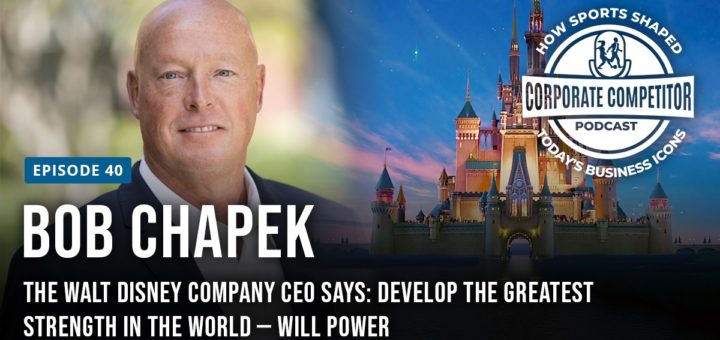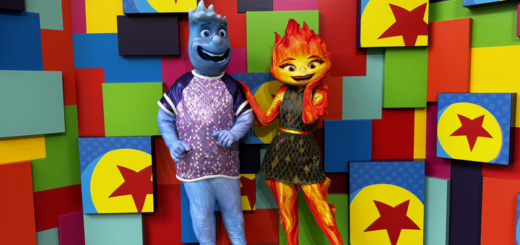Podcast Review: The Bob Chapek Interview on Corporate Competitor
Did you know that 94% of women with C-suite titles played high school and/or collegiate sports?
This fact demonstrates developmental competition’s impact on the shaping of young minds.
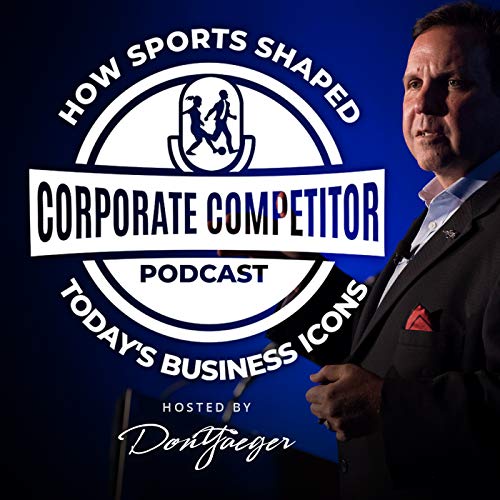

Photo: DonYaeger.com
This premise also provides the basis for New York Times best-selling author Don Yaeger’s popular podcast, Corporate Competitor: How Sports Shaped Today’s Business Icons.
On the most recent episode, Yaeger interviewed Bob Chapek, the CEO of The Walt Disney Company.
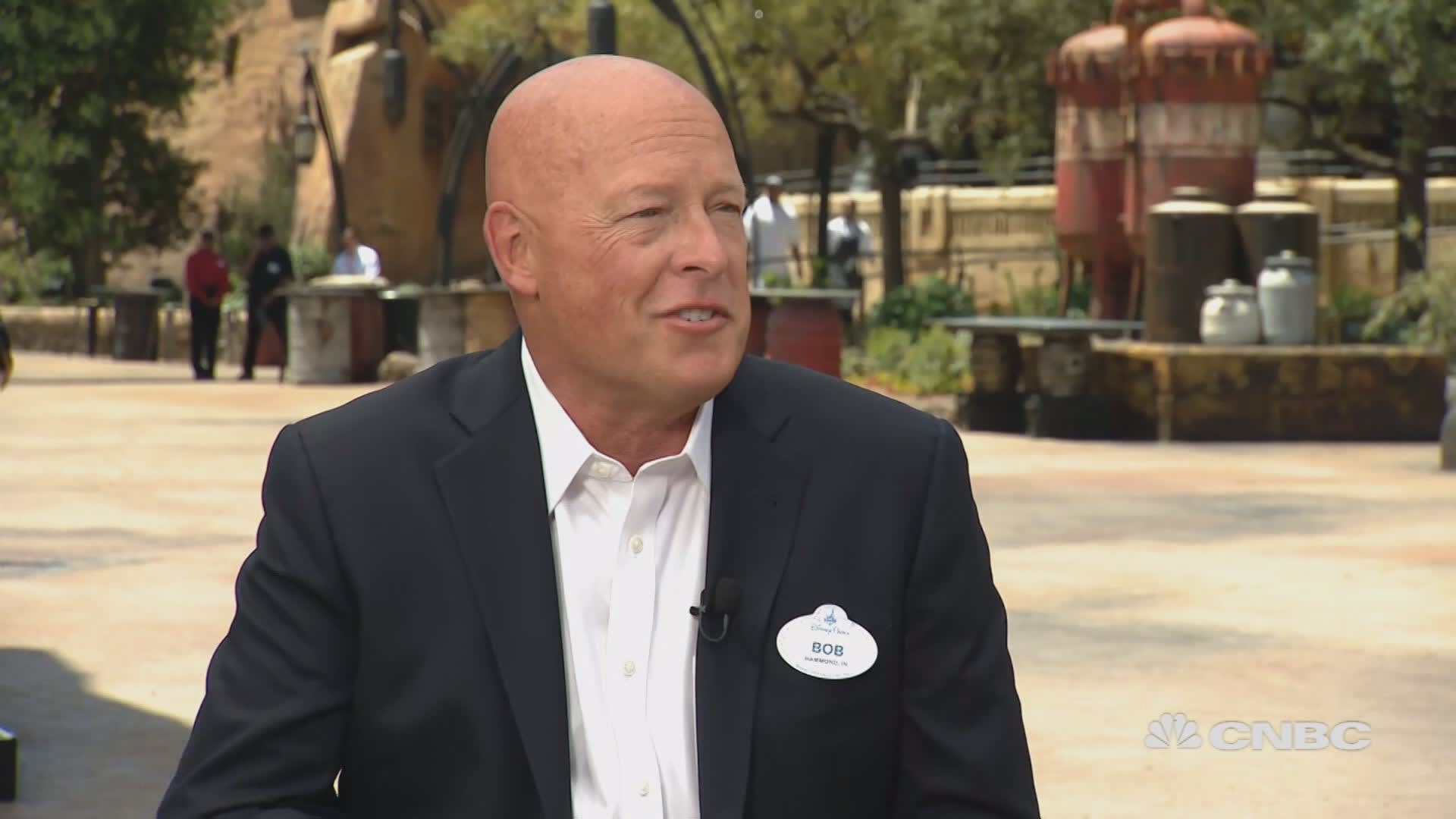

Photo: CNBC
MickeyBlog enjoyed an opportunity to review an early copy of the episode. Here are our thoughts.
A Fascinating Family Dynamic
Chapek’s teen years occurred during the 1960s, where he acknowledges an unusual upbringing for the era.
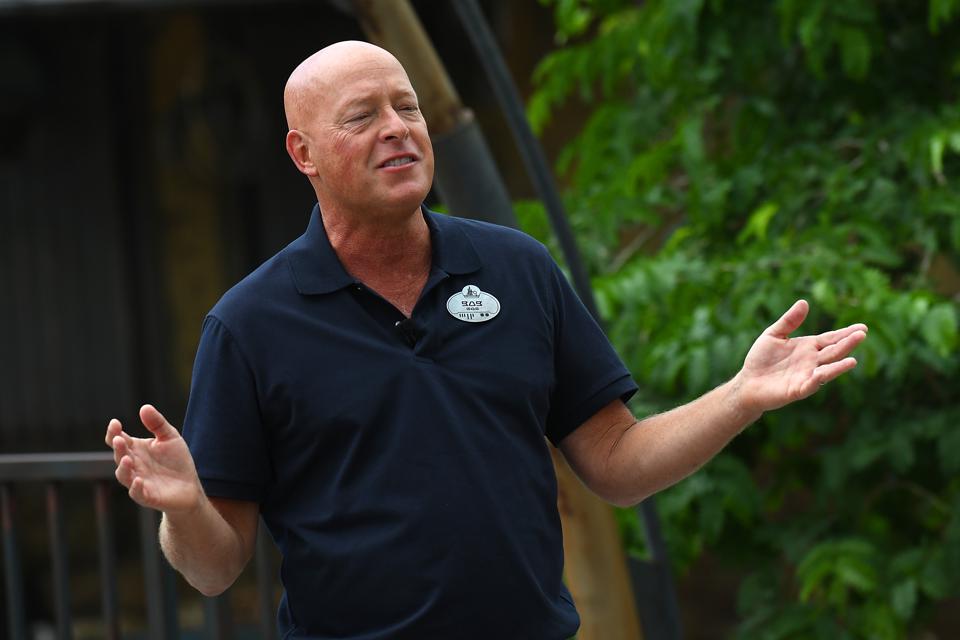

Photo: Getty Images
Since his mother wanted to work, he was among the first of a generation later described as latchkey kids.
Remarkably, Chapek demonstrated leadership even at a young age. He cooked dinner for his parents four times a week!


When he wasn’t taking care of family, Chapek spent his free time playing sports like hockey and basketball…but baseball was his favorite.
According to the CEO, he favored the game due to his skill as a third baseman, noting he wasn’t as successful at basketball.


However, the family unit also played a factor in his love of the game. His mother and father passionately supported the Chicago Cubs.
He reveals during the podcast that the family “watched 95 percent of the Cubs’ games during that era.”
Of course, the era he references is the one where the team went 108 seasons between World Series titles.


Photo: Wikipedia
Chapek acknowledges they were lovable losers at the time…err, the Cubs, not his family.
Interestingly, the CEO states that perseverance and willpower sustained him, leading to his eventual college admission.


Photo: Matt Stroshane/Courtesy Disney Parks
Neither of his parents went to college, but his sister did. Combined with his mother’s drive, the family put him on the right career trajectory.
Team-Building Lessons
Yaeger quizzes his guest on life lessons stemming from youth sports.


Chapek provides a fascinating comment here. He mentions the significance of the double play as three people working together to achieve a single goal.
However, as a track runner, the CEO learned another essential fact. Every mile of running you log in a meet stems from 50 miles of training.


Photo: Disney
That’s a leadership premise that applies to all aspects of business.
The performance people notice is possible thanks to the work you do when nobody’s looking.
Of course, the conversation encompasses more than just leadership ideas.


PHOTO: GETTY IMAGES
During the discussion, Chapek reveals that he loves Florida so much that he still vacations there whenever he can, exemplifying that he’s still a Disney fan at heart.
Chapek even has a childhood photo of him with Cinderella that his family uses to torture him the way that loved ones do.


While the CEO describes Disney as his dream job, he majored in Microbiology, planning to work as a pharmaceutical company.
Fate intervened when the young man discovered consumer marketing. And this path led him to the VHS tape industry, opening a door for him at Disney.


Humble by nature, Chapek almost casually tosses out that he has worked across all divisions of the company, a fact that proved integral in his becoming CEO.
Yaeger admires his interview subject for a comment he made at a 2015 college commencement speech.
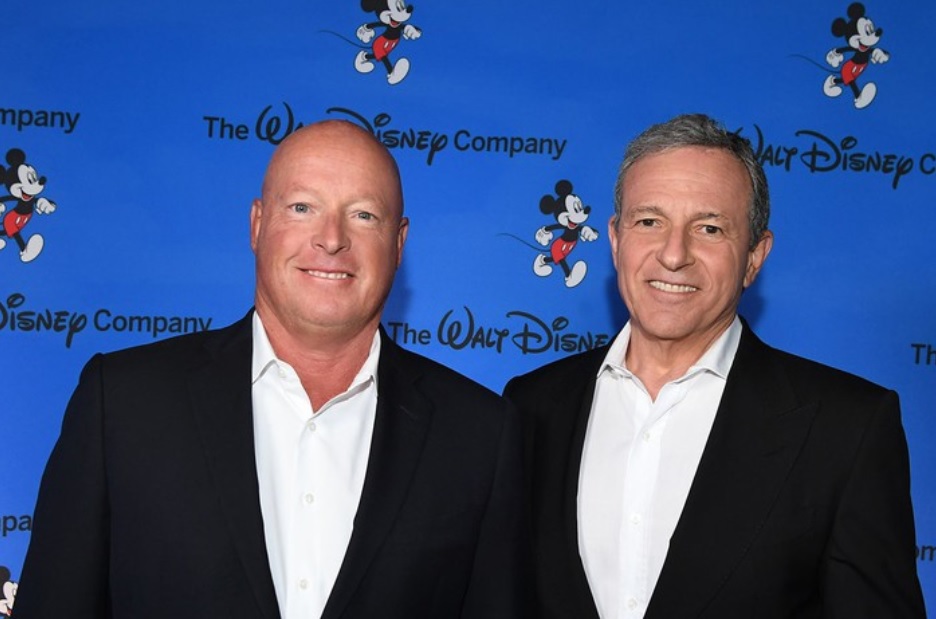

Photo: Disney
“Today is not the finish line. It is the end of the warm-up lap. After you get your first job, nobody will ask you about your GPA. You will have to prove yourself in your job every day.”
During that same speech, Chapek attributed success to three factors, two of which are God-given talent and determination. Let’s talk about the third…
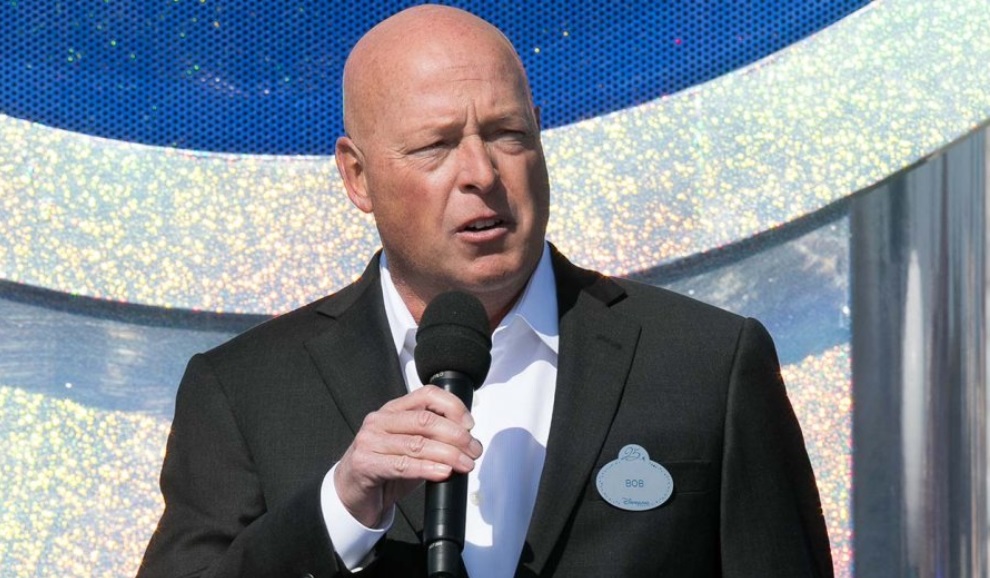

Photo: Marc Piasecki/Getty Images
“I Overprepare for Pretty Much Everything”
Yaeger lavishes praise on Chapek’s habits. The applicable quote is:
“Luck is what happens when preparation meets opportunity. To this day, I overprepare for pretty much everything.”
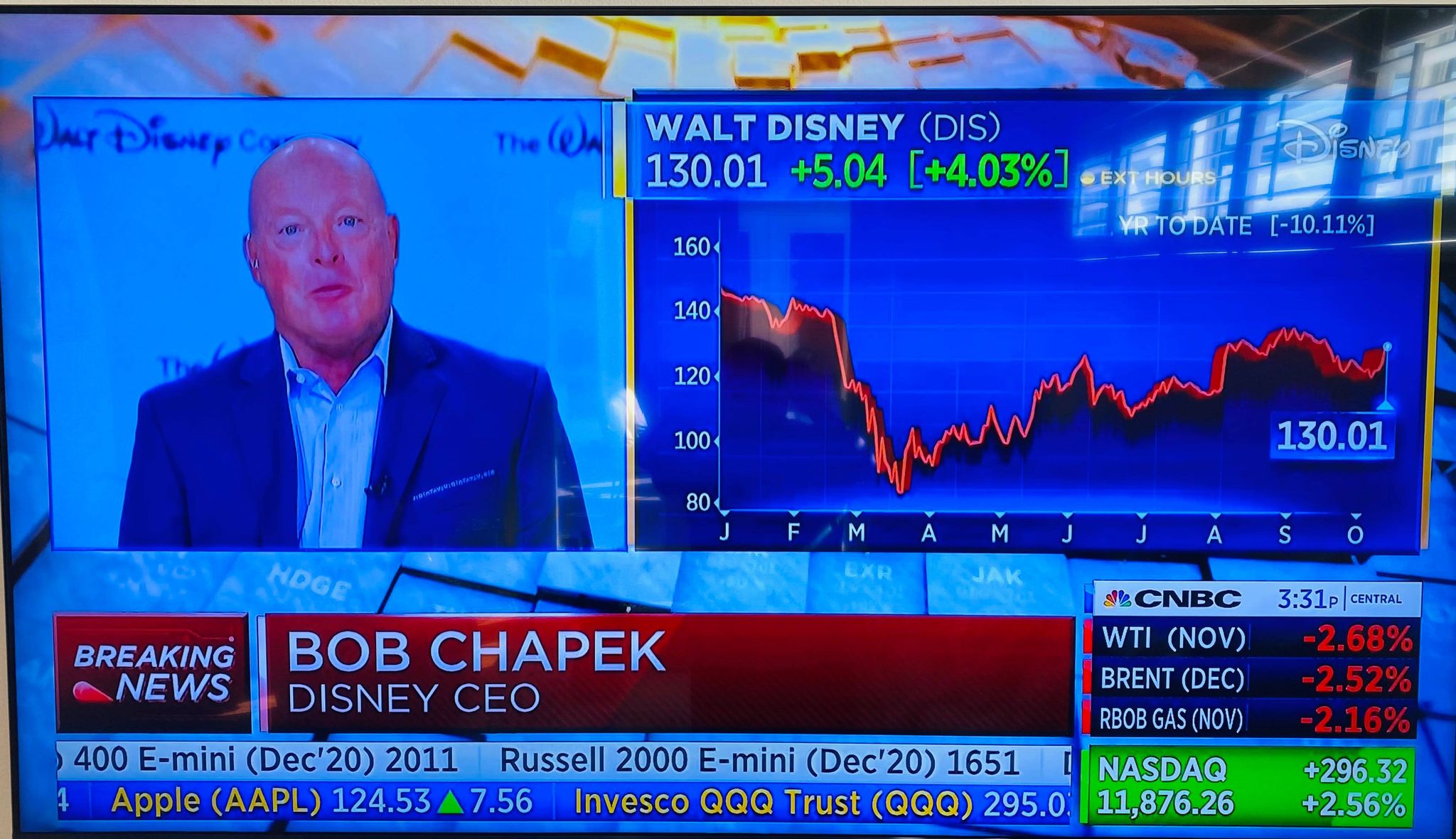

The interviewer admiringly summarizes the statement by saying that you make your own luck.
I won’t spill the details as I want you to experience some surprises while listening to the podcast. Chapek’s anecdote proving this fact is terrific, though.
Almost accidentally, Yaeger and Chapek discuss the technological innovations that have driven media during the past three decades.


Photo: considerable.com/
Chapek started in VHS tapes. He now oversees a company with three of the most powerful streaming media services in the western hemisphere.
A person who adapts at even a reasonable pace wouldn’t keep up with such hallmark change.
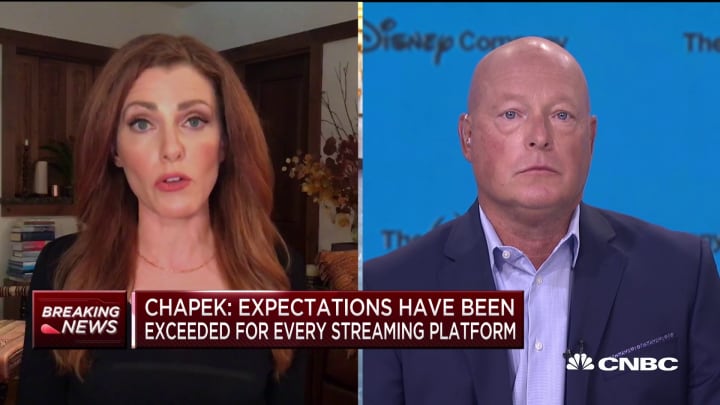

Photo: CNBC
Chapek’s success stems from his ability at “being on the front end of the wave, not on the back of the wave.”
He stresses the importance of disruption, pointing out that being reactive leads to inadequate outcomes.


His career triumphs speak to the advantages of such proactive leadership behavior.
Later, Chapek discusses the significance of CQ. That’s a curiosity quotient, the willingness people have to stay current by constantly questing for knowledge.
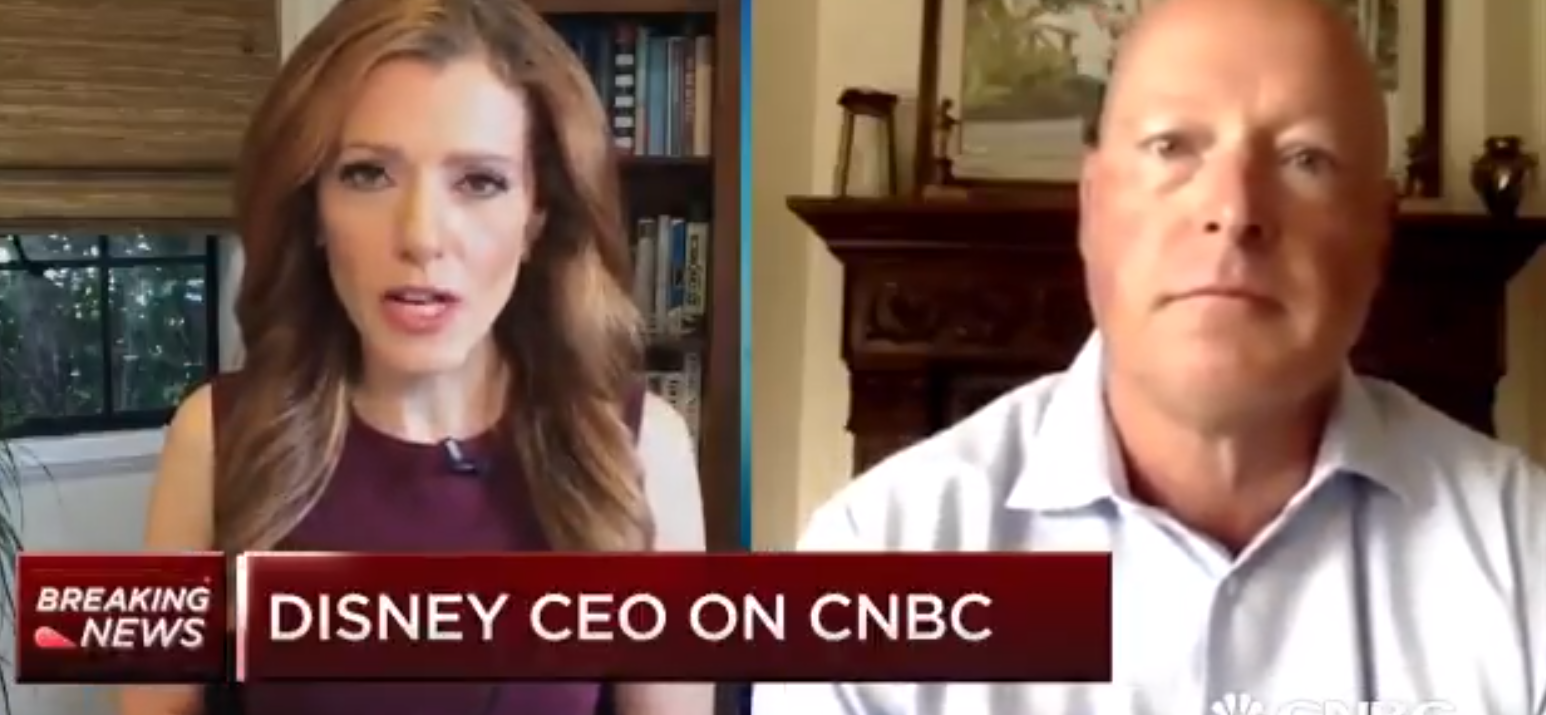

Avoiding the Frozen Middle
Another leadership approach that the two men discuss involves the “frozen middle.” No, this doesn’t have anything to do with Elsa and Anna.


Credit: Disney
Instead, the conversation focuses on the challenges in passing down company goals below the direct reporting level.
In layperson’s terms, Chapek can stress his vision to his underlings, those who report directly to him.


(AP Photo/Richard Drew, File)
The complexity involves how they relay that message to subordinates who do the same to their employees and so forth.
Think of that “pass it down” game from childhood where someone whispers a message to a friend. Then, they whisper it to someone else.
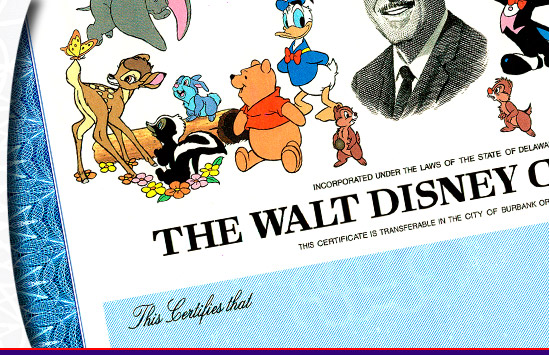

Along the way, the message tends to get relayed incorrectly over time.
In business, the more accurate description is that the frozen middle trends toward stagnation.
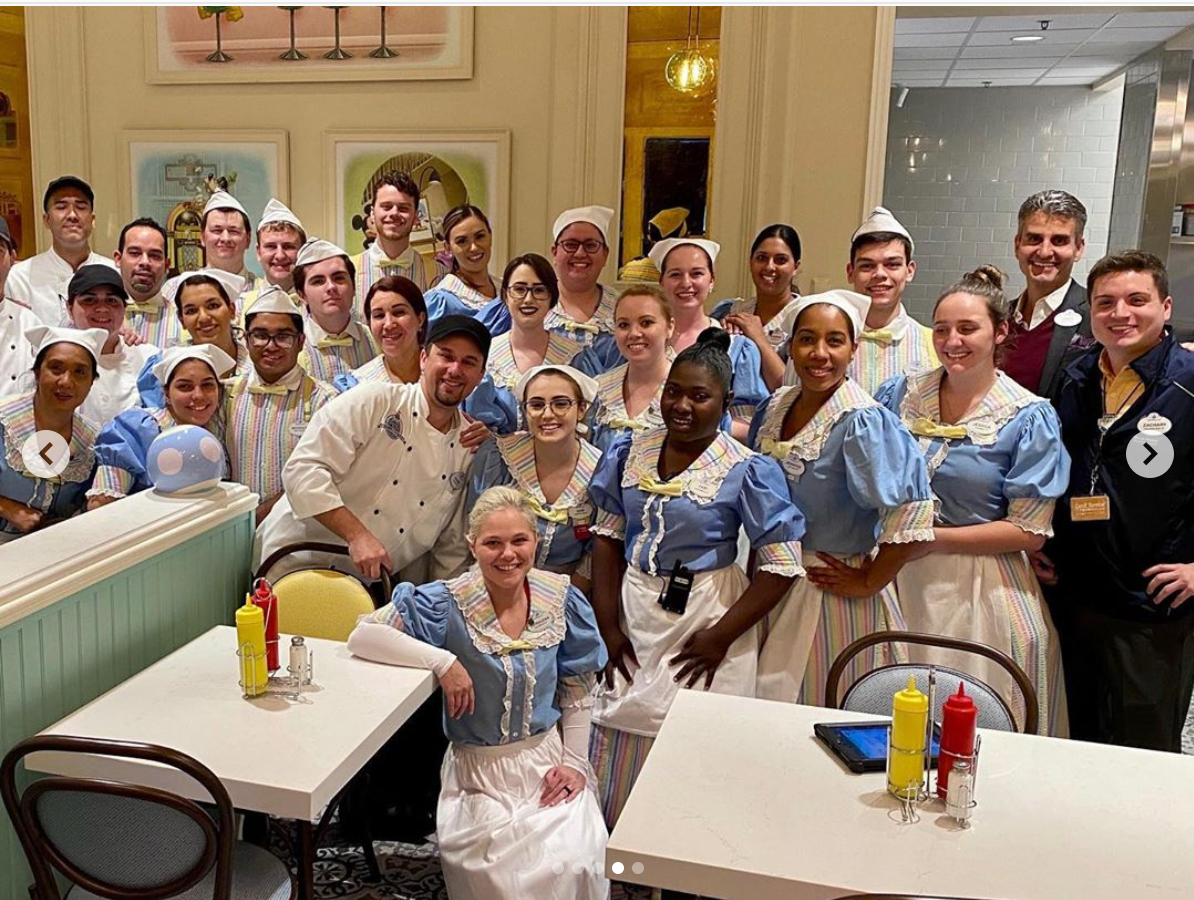

Photo: Josh D’Amaro/Instagram
Chapek’s solution involves creating ambassadors at all levels so that the message remains true for everyone.
The CEO later reveals that he prioritizes diversity in all forms, especially with thought. Otherwise, companies risk making the wrong decision.


As he states, without diversity, individuals are likely to come to a fast decision…but not the right one. Echo chambers are bad, mmkay?
I’m not in the position to explain the details, but Chapek also describes a leadership practice that the host summarizes as “strategically consistent but tactically divergent.”
A Disney executive must approach business from this perspective due to the global reach of the brand.


Photo: Disney
Different countries require unique approaches, albeit ones that maintain consistency with Disney’s overall profile.
Final Thoughts
Fun fact about me: I’ve appeared as a podcast guest exponentially more times than I’ve listened to a podcast.
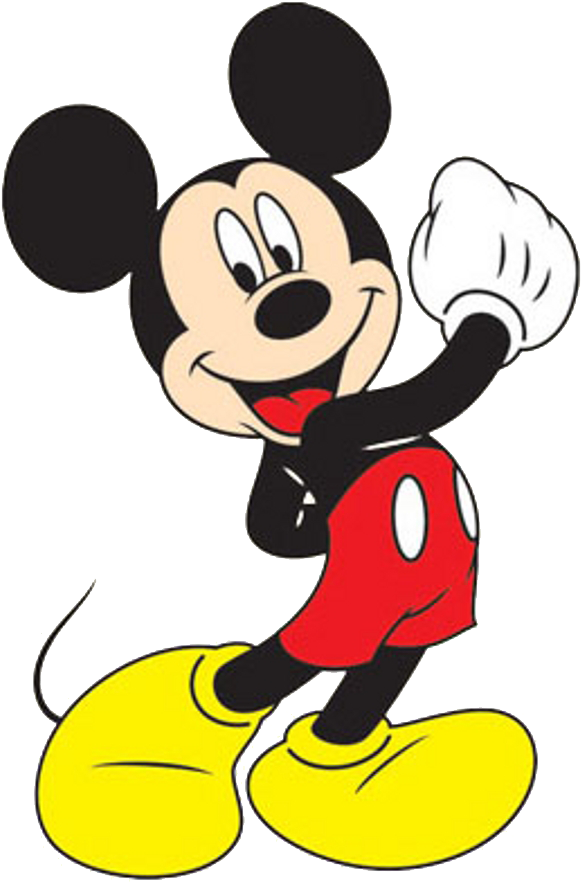

So, I’m not the target audience here, yet I was spellbound by the entire conversation.
Yaeger asks thought-provoking questions, and Chapek delivers responses that have caused me to re-evaluate my business philosophies.
![]()
![]()
At roughly 40 minutes in length, this episode will last about the same length of time as a drama on Netflix.
Listening to Yaeger pick Chapek’s brain about leadership represents a vastly superior usage of your time.
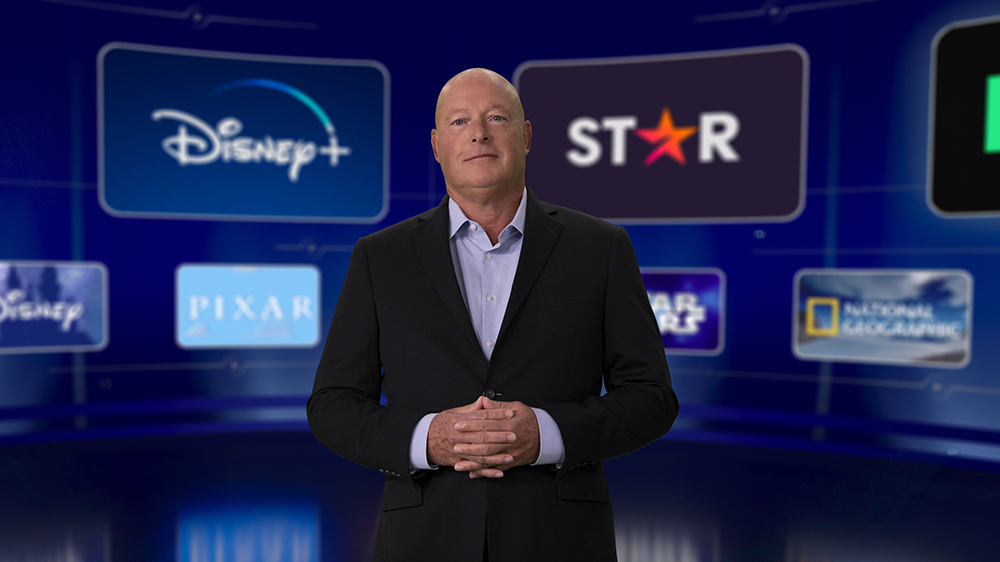

Photo: Disney
You may take inspiration and wisdom from Chapek’s management practices. And they could help you land that dream job/promotion you’ve long sought.
In fact, without spoiling anything, Chapek explicitly describes how he earned the title of Disney CEO. He also recounts what he seeks in candidates for promotions.
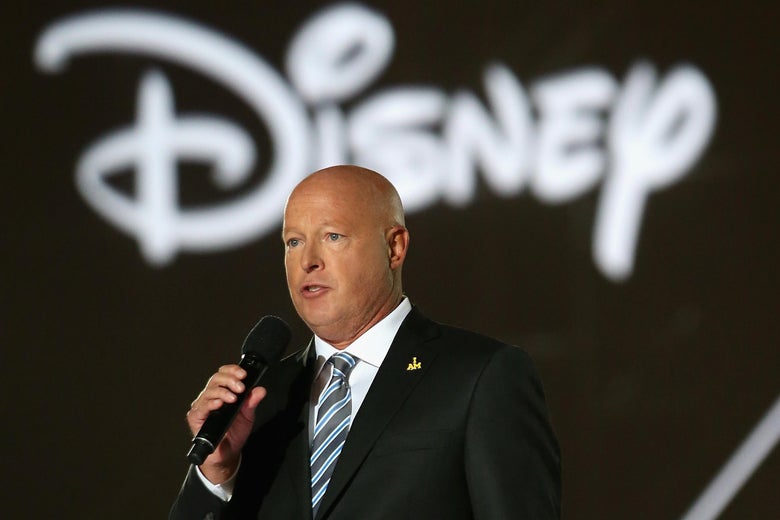

Photo: Chris Jackson/Getty Images
This information alone could lead to a career boost for you. As such, it’s a must-listen podcast that I highly recommend.
You can listen to it here or by subscribing to Corporate Competitor: How Sports Shaped Today’s Business Icons on your favorite podcast service.


Photo: Disney
The podcast will be available for public consumption on April 21st!


